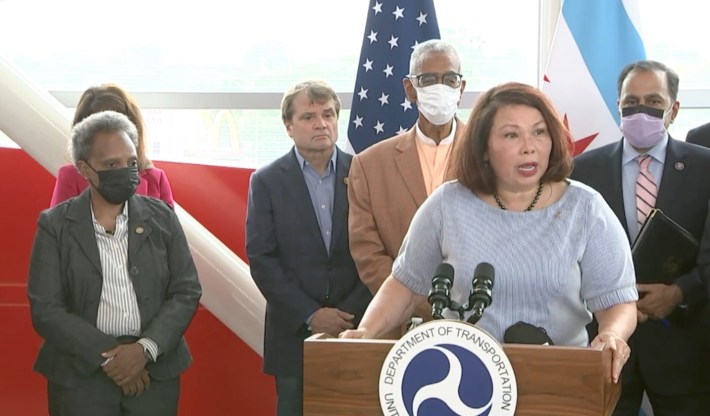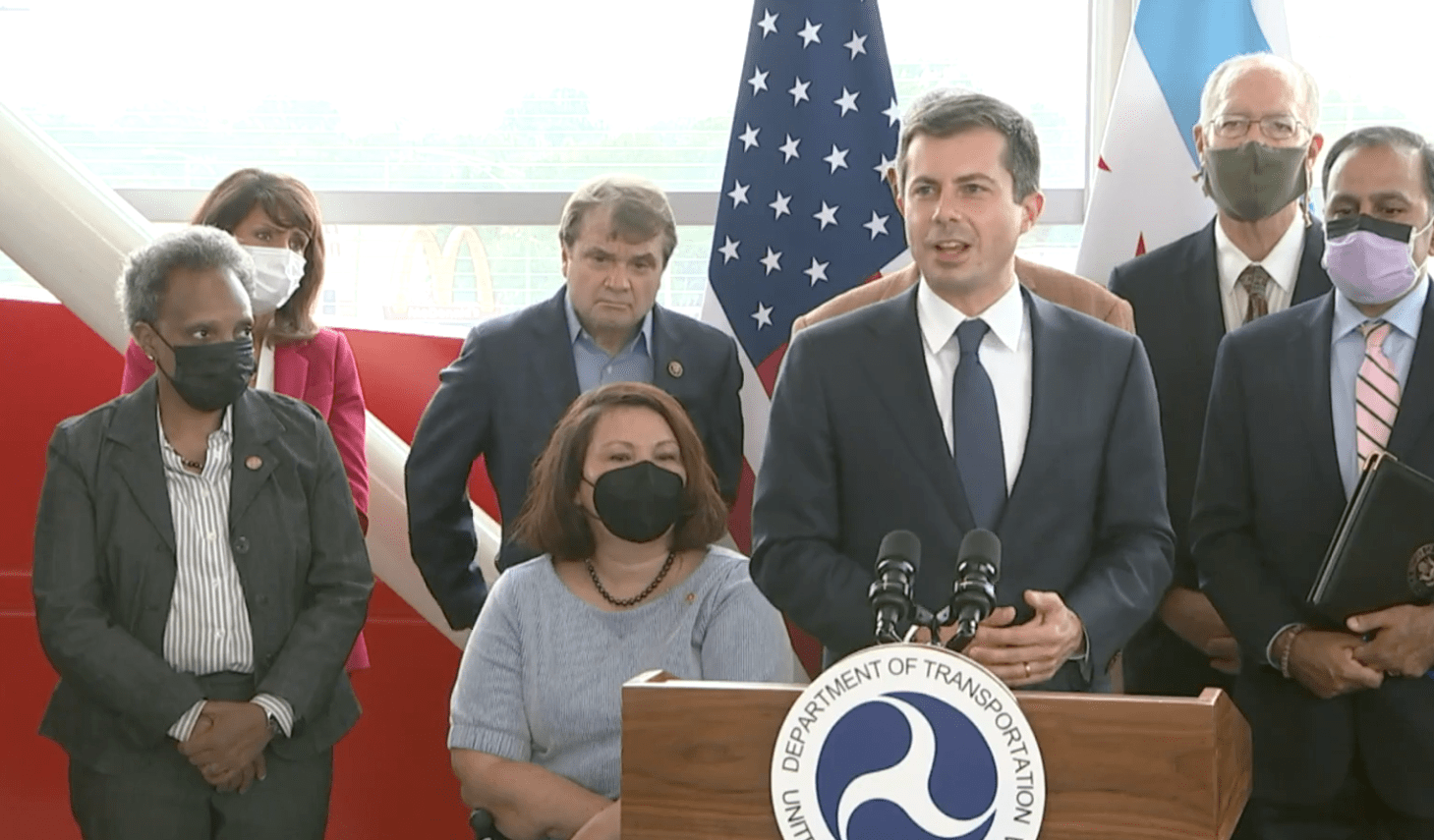On Friday U.S. transportation secretary Pete Buttigieg joined a who's who of Chicago-area politicians for a presser at the CTA's 95th Street Red Line station to publicize the importance of passing President Joe Biden's infrastructure plan for our region's future. Also in attendance were Mayor Lori Lightfoot; CTA president Dorval Carter Jr.; U.S. senators Dick Durbin and Tammy Duckworth; U.S. Congressional reps Raja Krishnamurthi, Mike Quigley, and Bobby Rush; and other officials.
Biden’s infrastructure plan sets aside $109 billion for upgrades to roads, bridges and other major infrastructure projects, another $49 billion for public transportation and $7.5 billion for electric vehicles and buses. Voting on the plan may happen as soon as this week.
If the plan passes, Chicago would have a good chance of winning federal funding for the $2.3 billion Red Line extension to 130th Street, a project that has been in the works since the Nixon era that would “be a game changer” according to Carter.
Lightfoot echoed that sentiment, saying the current CTA system “does not equally serve all of our South Side communities.” She added that the city stands ready to provide the necessary matching funds to secure federal grants for transit. “We’re going to keep on lobbying and advocating, but trust that we will be doing the right things on behalf of our residents to make sure that those federal dollars have a catalytic and transformative effect on our city.”
Buttigieg shared a personal anecdote to emphasize the need for the Red Line extension. He said when he was living near South Bend, Indiana, and commuting to an internship at NBC 5's downtown Chicago offices, his trip to the city via the South Shore Line took less time than it currently takes a resident of the Altgeld Gardens housing project, the future southern terminus of the Red Line, to ride CTA to the Loop. “When you think about equity — both in terms of who has access to transit and transportation, and who has access to the jobs that are created by new transit and transportation projects — we know we’ve got to do better.”
“This is about making sure we have a vision for the next 10, 20, 50 years," Buttigieg added. "Some of the ideas we will fund with these dollars are shovel-ready. But this isn’t just about what’s shovel-ready, it’s about what is shovel-worthy.”

Duckworth, who sits on all the Senate infrastructure committees, and lost her legs and partial use of her right arm while serving in Iraq, emphasized that Biden’s Build Back Better plan would provide funding to help make all transit stations accessible. She emphasized the importance of people with disabilities being able to ride public transportation to jobs. “It’s very difficult for others to succeed if we start leaving others behind."
Buttigieg noted that upgrading transportation infrastructure would help address climate change, since transportation is the largest emitter of greenhouse gasses in the U.S. economy. He argued that every time we give someone the option taking safe and efficient public transportation instead of having to "drag two tons of metal with them wherever ever they're going and then park it somewhere," we're also fulfilling Biden's climate goals.
Buttigieg said he's confident the bill will pass Congress, but not without challenges. “There will be more twists and turns, there’s no question. What we know is Republicans are impatient. The president is impatient. And there is a bipartisan will to get this done.” Should this legislation pass, it will be the largest infrastructure bill passed in U.S. history.






